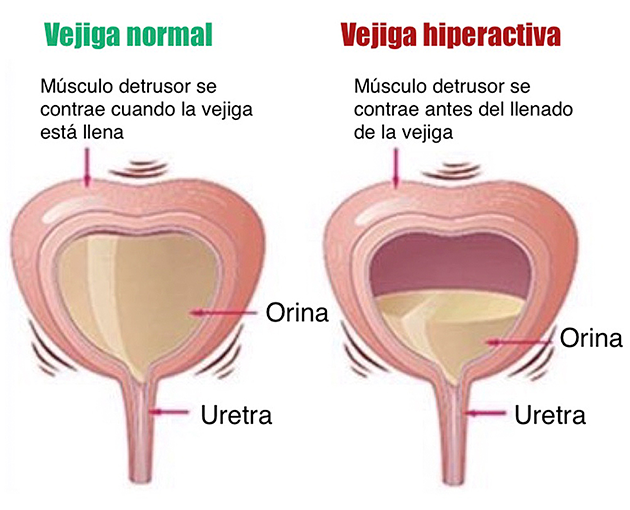How to clinically treat overactive bladder disease

From Mexico City, I had the pleasure of interviewing Dr. Gustavo Garrido, a well-known Argentinean urologist, with whom we delved into the "Hyperactive Bladder" pathology.
How is overactive bladder defined and how many stages are recognized in this disease?
"Overactive bladder can be defined as a sense of urgency, urgency and urgent desires to go to the bathroom, to empty the bladder, coupled with the frequency or the times that one goes to the bathroom, both day and night. This is a very prevalent pathology, approximately between 15% and 20% of the world population suffers, both in men and women.
What are the determining or predisposing causes?
"These causes we must divide between men and women, in general there are neurological causes, for some as for others, there are also causes that have to do with aging. As we see less over the years, we decrease our muscle strength, both men and women, we have less continence or less ability to hold the bladder. Therefore, these episodes of urination may occur, which can often end with episodes of urgency and urinary incontinence. "
Within the clinical context, what would be the first observations that are made, there are some stages identifiable first by the patient and later, in the evaluative questionnaire of the specialist or attending physician?
"The first signs, show that the patient has less ability to endure or postpone the fact of going to the bathroom to urinate, another indication reflects the fact of getting up at night. When we are young we last from 8 to 10 hours sleeping often, without going to the bathroom, this changes over time; needing to get up at least once to go to the bathroom. "
Which causes from a nutritional or dietary point of view, could be predisposing to the outcome of this disease?
"While eating is not a cause of overactive bladder, of course irritating foods such as spicy foods, caffeine or alcohol can aggravate it. Therefore, one of the first recommendations we make is to change these hygienic and dietary habits. Trying that these patients eat less amount of spicy and alcohol. "
I understand that 30% of the patients who seek treatment, do not receive assistance, 80% do not carry out the exploration of the lower urinary tract, what is really happening in terms of the diagnosis of this disease, could be misinterpreted or not well studied, in primary care?
"First of all we must emphasize education, educate our patients so that they understand that this is not a natural fact of life. It is unfortunate, but this happens often, many doctors before the consultation of a patient, who declares to have had some episode of urinary incontinence, besides the fact that they get up more than once in the night, they consider that this is normal and that is how they communicate it to their patient, which is false. We must understand that this pathology is treatable, it is curable, if it is diagnosed in time. There are excellent treatments, we must avoid understanding that we are facing a natural process, product of our aging ".
Usually when we are nervous, pressured, with urgencies to solve, watching a movie we do not want to lose, in a meeting, etc .; delay the urge to go to the bathroom to urinate, could this be a predisposing cause of overactive bladder?
"It is not really a cause, even if we are a little nervous or upset, this is when our system discharges more adrenaline, our kidneys and bladder are irrigated more with blood, therefore we have a greater desire to urinate. However, if we suffer from overactive bladder, it can be aggravated or intensified by the fact that we have more urine volume to evacuate. "
Does the intake of drugs for erectile dysfunction, could affect the urinary system?
"No, definitely the five phosphodiesterase inhibitors, are designed for erectile dysfunction, these achieve a vaso dilatation of the arteries of the penis and in this way, the erection is achieved. They do not generate cause of overactive bladder, nor can aggravate it; On the contrary, today research is being oriented, including the FDA has just approved the use of sildenafil for patients who have urinary symptoms, associated with erectile dysfunction. "
Within the cormobilities associated with erectile dysfunction, cardiovascular disease can be a trigger.
Could overactive bladder be associated with cardiovascular disease?
"Overactive bladder, although it responds to multiple causes, especially neurological ones, can be caused by a decrease in flow